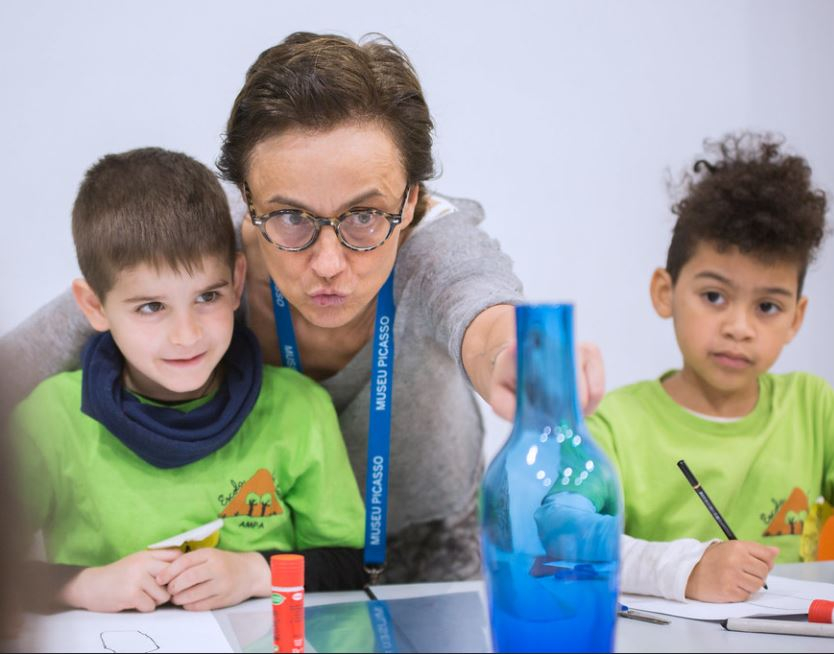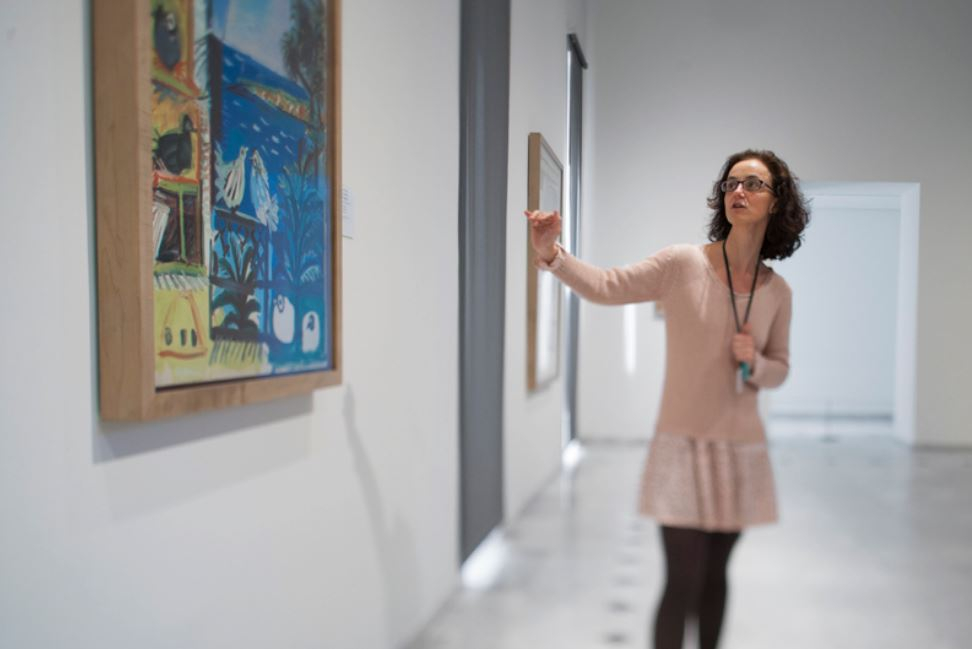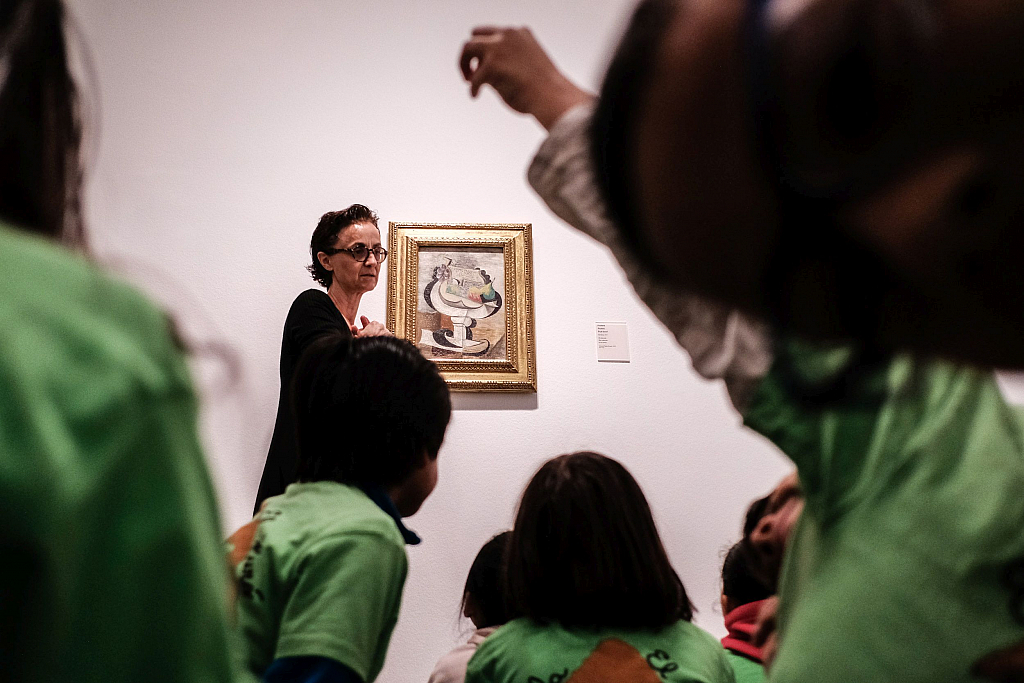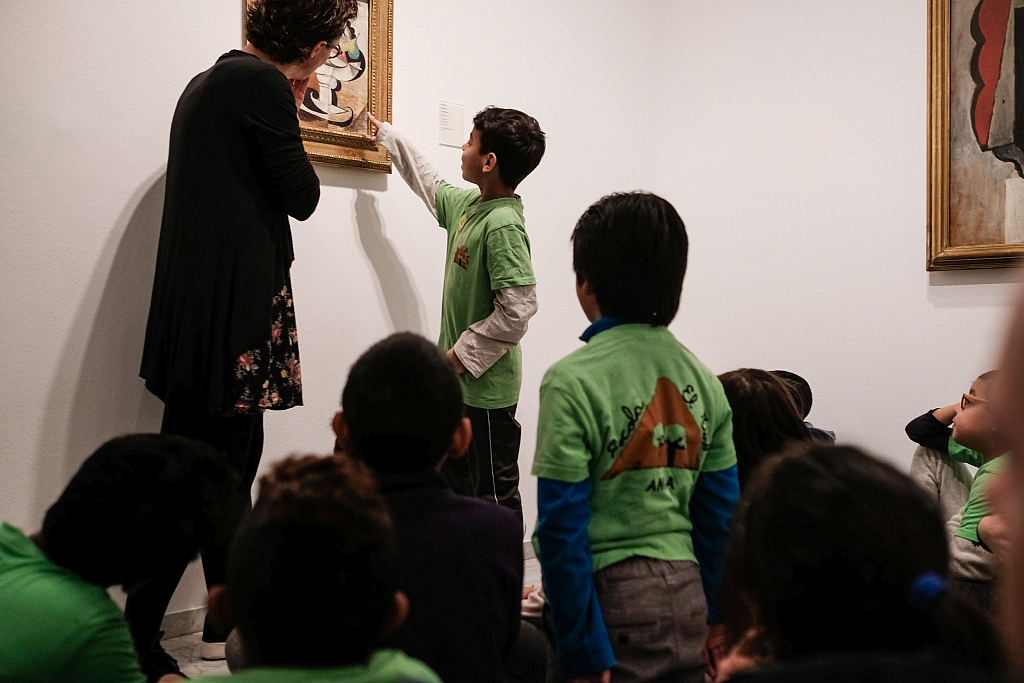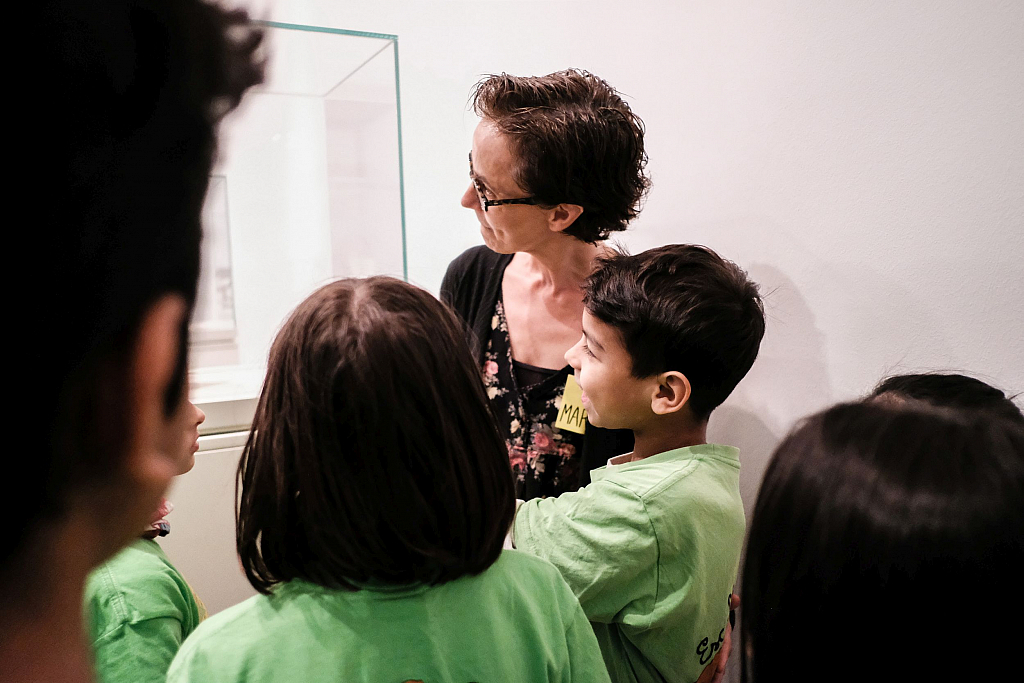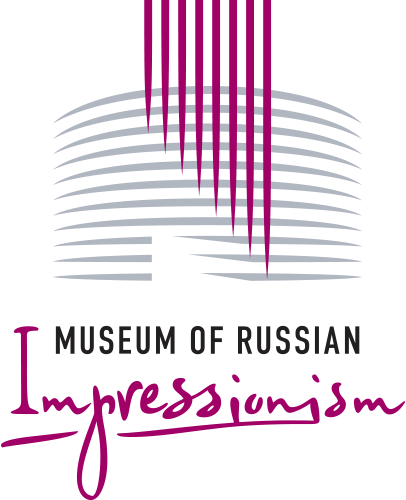Museums Under Quarantine. From Moscow to Kyoto
11 May 2020
The world is changing drastically before our eyes. This affects our museums, exhibitions, our visitors and us personally. Museum employees are people who are in love with what they do. They go to the “temples of culture” in order to worship art, people, sensibility, kindness and everlasting virtues, and not simply to earn money. Museum people even share the same language, it is a universal language of art, images and stories. With this project, we want to reflect on how the area will evolve, how we shall build our work, how we can help our visitors and how not to lose our connection with them at this challenging time.
The Museum of Russian Impressionism has interviewed people from different museums across the world and learned how their life is organized now.
Interview of Conversation between the education department curator, Elena Sharova, with the head of the educational department of the Picasso Museum in Barcelona, Anna Guarro, and the department coordinator, Maria Alkover.
1. Elena: Before quarantine, my day usually started with a cup of coffee on an empty stomach, while hastily getting ready and packing my essentials for the day: keycard for the museum, credit cards, cosmetics, and if I happen to oversleep, I will often have no time to put my coat on, so I will throw it over my shoulders, and rush to get a taxi to work – it’s good that it only takes 15-20 minutes without traffic jams. At work I have morning briefings with my employees, I work with documents, then more coffee, check my emails if there are no meetings, then ongoing work on creative projects - developing master classes, series of lectures and preparing for public speaking.
And how did you build the day before quarantine? Was there a clear schedule to follow?
What was the priority?
Anna Guarro, Head of Activities and Education Department:
Coffee first thing in the morning is a must! My mornings were also busy: walk the dog or take her out for a run, eat breakfast with my son and daughter, take the bus to his school and then to work, either by subway or bicycle – or sometimes walking, if I had the time, it’s a 20 min walk. Getting to work is usually the start of a busy day: emails, meetings (either internal or external), and preparing upcoming projects and events or doing the follow up on current ones.
Maria Alcover, Coordinator of Education Department:
My morning started at 6 o’clock, I always preferredmornings, and another big difference is that it started with a kiwi, even before coffee.
2) Elena: Now everything is different - I wake up without an alarm at eight in the morning and manage to do yoga and prepare a delicious breakfast, then - emails, calls with colleagues, and work on moving existing programs to online platforms. I also took a dog from the shelter!
How has your day changed? How do you work now? Do you visit the museum or work from home?
Anna Guarro:
We have been very strictly confined at home since March 13th, so we can’t visit the museum! I miss it! My wake up time is basically the same as before: I try to get a head start so when my son gets up I have already handled my mails and I can help him with homework. So the time I spent in public transportation is now used up to start earlier than I did. Since I manage the social networks and web page of the museum as well as education and cultural events, my day has been really busy so far, lots of meetings and many decisions to turn the museum into a cultural resource for all of us in confinement. Luckily a new person has joined the museum and this part is being transferred to her as we speak! These weeks have been spent in a whirlwind of restructuring projects and budgets and planning for the near future. I seem to have almost as many meetings as before! But I love Zoom, Jit.si, Google Meet and Skype. I think this technology is here to stay! When I think of the time I used to spend going from one meeting to the other!!!
Maria Alcover:
Maybe the best part is waking up at 8 o’clock. My mornings between 9 and 14 are about working and homework, as my eleven years old son is dyslexic and it is hard for him to organize himself. I’m working with my colleagues on different projects: Tàndem (I will explain later), a school program for next year and a pedagogic traveling suitcase.
3) Elena: This week was the first time that I held an online lesson for children about the exhibition in our museum, which is now temporarily closed due to the quarantine. We discussed the paintings, the life of artists, and drew pictures based on their works. I was surprised to find that doing this online does not bother the children at all, they communicate and get involved in the process with the same interest and enthusiasm as they do in the museum. Perhaps they are even more willing to discuss paintings and express their versions of what is happening on them.
And how are you? Have you developed work with children online? Or do you think this is superfluous and just prepare new classes for the future?
Anna Guarro:
That had to be a wonderful experience! Our work with children is conducted through schools, which are now closed. We collaborate very closely with several schools, some of them are in our neighborhood and one particular is in another neighborhood. We are working together within a 3-year, very prestigious project called “Escoles Tàndem”. Maria, who is running it, will tell you more about it and what we have already done with the teachers to help kids at home. A school nearby, which we have collaborated for 4 years with, is preparing a project based on #GettyChallenge that would involve our artworks. So we will have more than 300 versions of our works as seen through the eyes of children!
Maria Alcover:
This was our second course in collaboration with a school in Barcelona. A school with 98% of immigrants, different cultures, different families, different levels. The objective of the project is to achieve a change in the school program, in the methodology, which helps to unite and achieve better education for its students. The confinement due to coronavirus, on the one hand, has suspended our day-to-day work with students in situ and we are waiting to see how the reunion will be. But on the other hand, it has left us time to think, to debate, to work with the teachers in a much more relaxed way and we are making great progress in creating (on paper) the Project itself, which gives more security to the teachers to get it going once we can get back to the classroom. Project work, involving art in the process, debates on the works of art, experiments, ... We keep in touch with the students via Facebook and Instagram, sharing little art challenges.
4) Elena: In Moscow access control has been introduced and we cannot move freely around the city. What available to us now is a walk to the nearest store, the pharmacy, and walking out your dog. Thank God, I have a dog now and I can walk. But I spend most of the time at home, working on my computer.
What kind of restrictions do you have? Can you go to work? Or the only staff available at the museum is security personnel?
Anna Guarro:
We had severe restrictions and a total lockdown until yesterday (May 2nd). Only security and basic cleaning services are allowed into the museum, and restoration staff if permitted. Thankfully I have the dog and have been able to go out walking with her! I’m usually very active and staying indoors is hard for me. I was able to go out for a run yesterday, which was a total pleasure!!!
Maria Alcover:
As Anna has explained, we were required to stay at home since March 13th, so we can’t visit the museum.
5) Elena: My mother lives in another city, trips between Moscow and her city are suspended: neither planes fly nor trains run. And I am very worried about her. On Easter, I ordered her a delivery of Easter cakes from a candy store and she burst into tears. For us - it’s very hard not to see each other for so long.
How has this whole situation affected you and your family?
Anna Guarro:
I can’t complain, it’s only that I miss my parents. They also live outside of Barcelona and are very old, so visiting them is out of the question, I may put them in danger. But fortunately, they are well and have not gotten sick! Maria has a different story to tell.
My daughter is a teenager, so she organizes her own time right now (meaning that she sleeps late, chats with friends most of the day and late in the day remembers that she has her homework to do!). My son loves being at home, I have to push him to go out! We are usually quite happy together, but some disputes arise now and then, particularly when it comes to helping me with house chores. We get very Mediterranean and scream and fight and then we hug and reconcile and then talk.
Maria Alcover:
My family felt really scared when my 83-year-old mother got a fever on the 1st day of the quarantine. But since she didn’t have any other symptoms, we did not receive any medical attention. Finally, thanks to a friend from a local hospital, ten days later we managed to do the test which confirmed both coronavirus and pneumonia. My mother was kept in the hospital for about 18 days, and we had no contact with her. Once a day there was a call from the doctor, at first with bad news, then little by little with updates on her improvement and total recovery. She is a very strong and very independent person. Now we are calm, and she is alone in her apartment by her own choice. At home we are four persons, a couple and two sons, and we have another daughter who lives in London and is also now quarantined. Everybody is ok.
6) Elena: Still it’s hard to imagine what will happen next, and I continue to come up with programs for the eventual opening of the museum in the same format as always.
How do you think this situation will affect museums and their audience? How do you see the museums of the future?
Anna Guarro:
A lot has been said about that, and it looks like some changes are here to stay. I hope that the role that museums and art and culture, in general, have had in this crisis will change how societies consider us. The social significance of museums and the tasks we do to preserve, research and communicate our cultural heritage, have been put to the forefront, and I am very thankful to society at large for this recognition of the task we do and how necessary it is to feed the soul, so to speak. Art and culture have become necessary to keep an emotional balance and an intellectually active mind, particularly in times of hardship.
Economic prospects for museums are bleak, though. Even those of us who were economically self-sufficient will cease to be so for the time being. So we are at the hands of our governments. Their faith in us, and their response to the univocal sign that the citizens have sent through social media, will now be key to our future.
7) Elena: I have never thought that I would miss going to work in the mornings and taking the subway to our small office. Now I dream about coming to our office in the morning and just saying "Good morning, everyone!" and hearing the voices of my colleagues in response, and then going down to the exposition and seeing how it is filled with people.
What do you personally dream of now, what do you miss the most?
Anna Guarro:
Coming into the office and saying “Hello!” to everybody would be a dream! I miss that so much! Walking into the museum before it opens, seeing the schools arriving for their visits (the eager faces of the kids!), the companionship of my colleagues, team meetings and joint reflections, an excitement of the event... To be working on a project and going to the galleries to see a certain artwork to double-check its characteristics... And to have lunch together! What a treat!
Maria Alcover:
I think there is not much left to add. My dreams are just the same.
